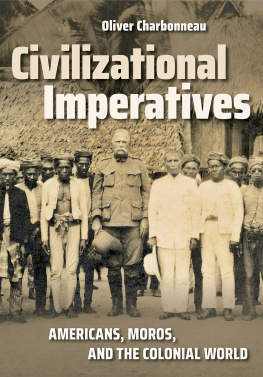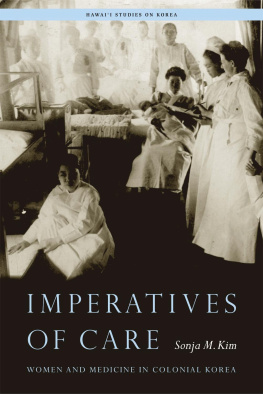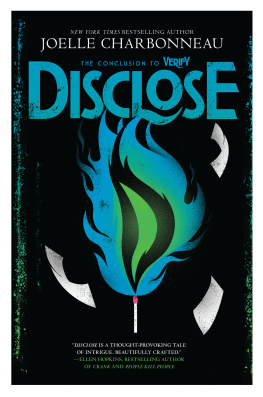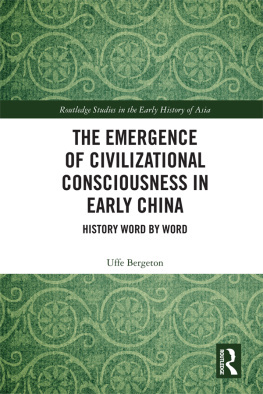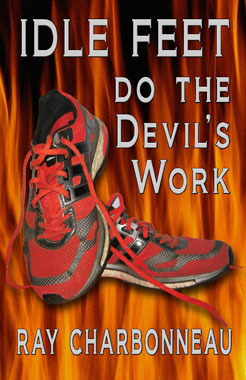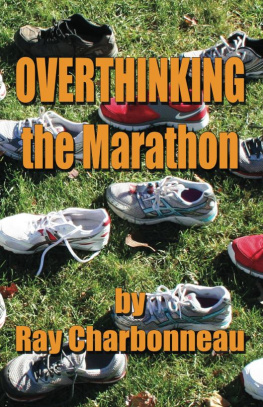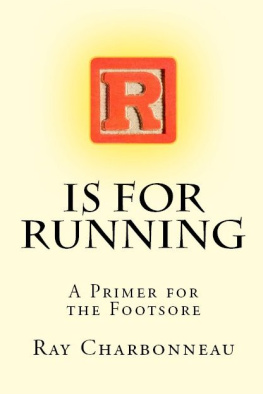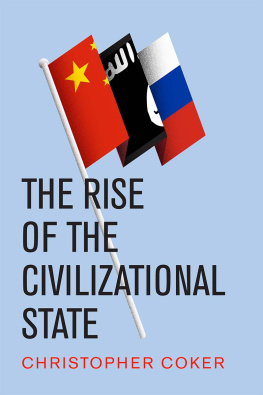Acknowledgments
A first book is a journey across unfamiliar terrain. At the risk of belaboring a clumsy topographical metaphor, many people helped map the territory ahead, often providing gentle course correction. The various individual and institutional supports I received while writing this book were integral to its completion. My gratitude extends beyond my facility with the language, but I will try to convey it anyhow.
Civilizational Imperatives began as a conversation with Frank Schumacher in early 2010. Frank helped shape my understanding of U.S. history and pushed me to extend my lines of analytical inquiry. His breadth of knowledge, generosity of spirit, and professional guidance made this project possible. I am grateful to have him as a mentor and friend. Numerous other faculty members in the History Department at the University of Western Ontario (and affiliate colleges) also helped move me down the path from feckless layabout to competent historian. Carl Young, Robert McDougall, Francine McKenzie, William Turkel, Robert Wardaugh, Nancy Rhoden, Maya Shatzmiller, Laurel Shire, Robert Ventresca, and Rene Soulodre-La France are due gratitude for their insights and patience. Thanks also to my colleagues at the University of Glasgow, who have made me feel extremely welcome in my new academic home.
Many historians from my (broadly defined) field lent support and guidance throughout the research and writing process. Ian Tyrrell gave thoughtful feedback on my first draft and encouraged me as I moved the project forward. His dedication to assisting young scholars is an inspiration. Anne Foster showed an early interest in Civilizational Imperatives and helped me better understand the academic editing process. Joshua Gedacht has shaped my thinking on Islamic Southeast Asia and been a great conference companion. Karine Walther tutored me on the particulars of finishing a book and provided a template for writing wide-ranging histories. Kristin Hoganson and Jay Sexton saw value in this endeavor and encouraged me to refine my ideas on transimperial exchanges. Beyond this, I am grateful to many others for their advice, support, and collegiality on various fronts. The following list is necessarily partial. Many thanks to Patricio Abinales, Christopher Capozzola, William Clarence-Smith, Boyd Cothran, Patricia Irene Dacudao, Julio Decker, Thomas Fleischman, Michael Hawkins, Daniel Immerwahr, David Huyssen, Margaret Jacobs, Patrick Kirkwood, Jonas Kreienbaum, Timothy Marr, Rebecca McKenna, Sarah Miller-Davenport, Marina Moskowitz, Karen Miller, Simon Newman, Hana Qugana, Dan Scroop, Kim Wagner, and Colleen Woods. Michael Adas unknowingly inspired the title of this bookmy thanks to him as well.
Paul Kramers many writings on U.S. imperialism in the Philippines shaped my understanding of the topic. His support for my research has been immensely gratifying. I am thankful to Paul for his guidance and for tolerating my digressive e-mails. Thanks also to the other series editors and the manuscript reviewers. At Cornell University Press, appreciation goes to Michael McGandy (who has more patience for first-time authors than we likely deserve), Meagan Dermody, and Susan Specter. Bill Nelson provided great maps at reasonable rates.
Helpful staff members at the Bentley Historical Library (University of Michigan), the Division of Rare and Manuscript Collections (Cornell University), the Manuscript Division at the Library of Congress, the Missouri History Museum Library and Research Center, the National Archives (College Park, MD), the Special Collections Research Center (Syracuse University), the United States Army Heritage and Education Center (Carlisle, PA), and the State Historical Society of Missouri (Columbia) assisted me in locating important research material. The Social Sciences and Humanities Research Council of Canada and the University of Western Ontario provided crucial financial support.
Portions of chapter 6 were previously published as Visiting the Metropole: Muslim Colonial Subjects in the United States, 19041927, Diplomatic History 42, no. 2 (2018): 20427, used by permission of Oxford University Press. Portions of chapter 7 were previously published as The Permeable South: Imperial Interactivities in the Islamic Philippines, 18991930s, in Powering up the Global, ed. Kristin Hoganson and Jay Sexton, 2020, used by permission of Duke University Press.
Tolerant friends inside and outside of academia buoyed my spirits and gave me perspective when the book threatened to consume everything. Thank you to Tim Compeau, Marilla McCargar, Nic Virtue, Dorotea Gucciardo, Rachael Griffin, and Gregg French for sharing in these joys and miseries with me. I am better at fantasy baseball than Sean Somerton, Robert Leonard Cleaver, P. Ian Quinlan, Mark Dixon, and Dylan Worsell even if I never win championships. Special thanks to the selfless and dignified Paris McCargar-Olivier.
Nijole Kuzmickas did not live to see this book published, but her love informed its composition. A brilliant filmmaker, activist, gourmand, and friend, she provided me with a template for how to be in the world. I carry her memory always. Nijole lives on through Robin Preston, whose fascination with history and sense of adventure are an inspiration. Robert Favetta is an outstanding partner to my mother and among the kindest and most generous people I know. I appreciate his gently provocative sense of humor, culinary talents, and woodpile management skills. Tara Charbonneau and Ralph Sutton have supported me as long as I can recall. My thanks to them and their three childrenAja, John, and Alexfor always welcoming me into their home.
Our strange little dogs, Augie and Lily, saw more of my writing process than any human did. They slept through the writing of each chapter and are staying true to form as I type these words. They are charming, absurd, and couldnt care less whether or not I ever publish again.
My father, Charles Aitkenhead, bequeathed me an obsessive desire to learn and collect, unwittingly jump-starting my life in academia. He uncomplainingly allowed me to steal his books, and nights spent watching British sitcoms on his little television helped shape my comic sensibilities. Dad provided valuable editorial feedback as I wrote early drafts of the book. My mother, Therese Charbonneau, sacrificed years of her life to make sure I became a passable version of a human being. She is the most open-minded, nonjudgmental, and generous person I know. Her constant travels made me consider global issues decades before they became a pillar of my research. Love you, Ma!
This book is dedicated to my partner, Victoria. I am so fortunate to spend my days with someone as insightful and engaged and weird and wonderful as her. V is a voracious reader, tremendous cook, compassionate educator, and all-around amazing person (although the jury is still out on whether that ostrich egg was worth the trip). Her unwavering support made completing

